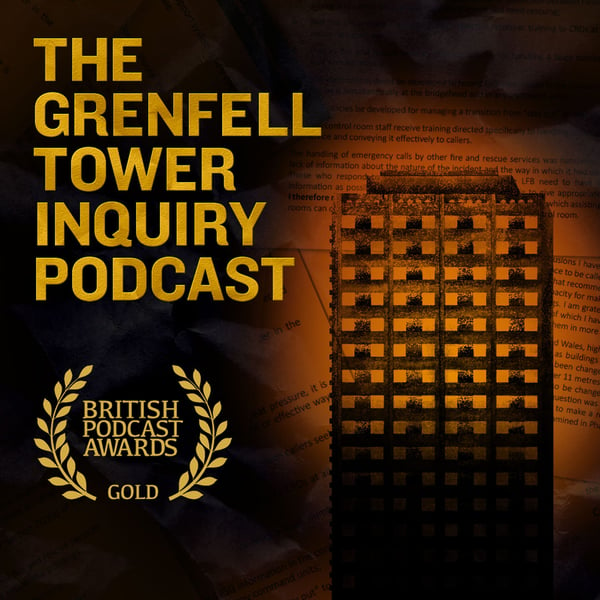192 Aftermath of the fire
The Grenfell Tower Inquiry Podcast
BBC
4.8 • 627 Ratings
🗓️ 15 April 2022
⏱️ 48 minutes
🧾️ Download transcript
Summary
This week, the Inquiry moved on from the technical discussions of the building regulations and the role of central government to focus on the immediate aftermath of the Grenfell Tower fire. Bereaved, survivors and relatives gave emotional evidence about their experiences directly after the disaster, saying they were “treated like criminals” with the authorities apparently most concerned about the possibility of rioting. They struggled to find officials on the ground in the hours after the disaster and there was little if any information available about who had died and who had survived. Many said they received poor support, including grossly unsuitable accommodation, causing more trauma. The Royal Borough of Kensington and Chelsea admitted to numerous failings including in communication, accommodation and training. Presenter: Kate Lamble Producers: Sharon Hemans and Kristiina Cooper Researcher: Marcia Veiga Sound Engineer: Gareth Jones Editor: Hugh Levinson
Transcript
Click on a timestamp to play from that location
| 0:00.0 | BBC Sounds, Music, radio, podcasts. |
| 0:05.3 | Hello and welcome to the Grenfell Tower Inquiry podcast with me, Kate Lamble. |
| 0:10.2 | The evidence heard at the inquiry this week was very different. |
| 0:13.5 | Instead of the technical discussions of building regulations which we've heard in recent weeks, |
| 0:18.0 | the inquiry started a new section, looking at the aftermath of the Grenfell Tower fire |
| 0:22.6 | and hearing emotional testimony about what support was provided to residents in the seven days following the disaster. |
| 0:29.8 | There was nobody there to explain what's going on. It was chaos. |
| 0:34.0 | We were abandoned. We were abandoned in the worst way possible. We were taken from trauma to trauma, |
| 0:41.7 | repetitive trauma, but the adrenaline of wanting to find our loved ones was the main focus. |
| 0:50.0 | Let's get started with the evidence then. At the opening statements for this part of the inquiry, Danny Friedman, who represents one group of bereaved survivors and residents, |
| 0:58.9 | described the aftermath of the Grenfell Tower fire as a humanitarian and political crisis. |
| 1:04.4 | This was a disaster inside a community where those affected mostly could not leave or did not want to, |
| 1:10.3 | even though their homes, possessions and privacy were destroyed. |
| 1:14.6 | Huge numbers of their friends and family were dead, and the smoke and debris were still around them. |
| 1:20.4 | The crisis was political because a disaster was undeniably human made, and its victims remained under the governments of those in part who made it. |
| 1:31.0 | The local council, the Royal Borough of Kensington and Chelsea, which owned the building, |
| 1:35.3 | paid for the refurbishment which fixed combustible materials to Grenfell Tower. |
| 1:39.8 | The government set the regulations which governed the use of such materials. |
| 1:43.9 | In a political sense, the social contract with government... government set the regulations which governed the use of such materials. |
| 1:50.3 | In a political sense, the social contract with government, which had already fraught was broken because a state that not only fails to protect its people, but positively undermines their |
| 1:56.3 | safety, is not worthy of their consent. |
| 1:59.7 | Danny Friedman said the UK didn't have a disaster management system, |
... |
Please login to see the full transcript.
Disclaimer: The podcast and artwork embedded on this page are from BBC, and are the property of its owner and not affiliated with or endorsed by Tapesearch.
Generated transcripts are the property of BBC and are distributed freely under the Fair Use doctrine. Transcripts generated by Tapesearch are not guaranteed to be accurate.
Copyright © Tapesearch 2025.

